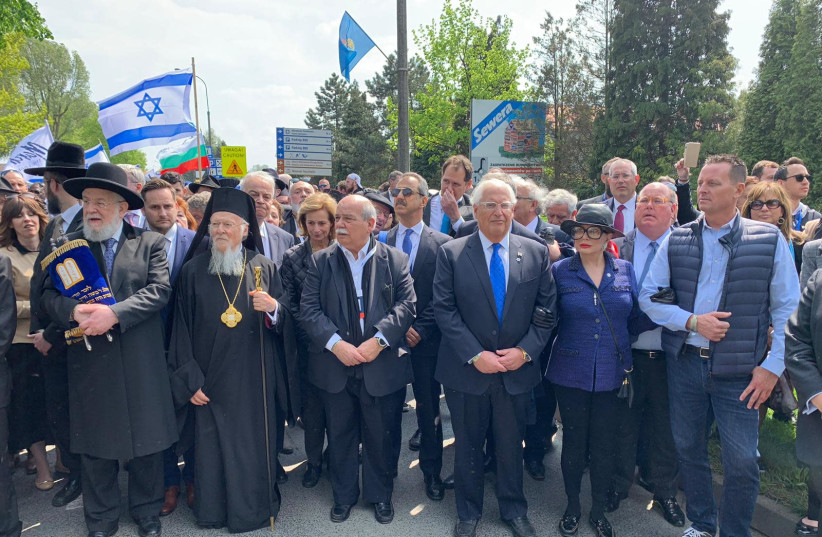An Arab-Israeli youth movement will be the first group of its kind to take part in the March of the Living on Tuesday, the educational project that brings people from around the world to Poland and Israel to learn about the Holocaust.
120 members of the Atidna youth movement will travel to the Auschwitz concentration camp in what is the largest contingent yet of Arab-Israelis to go on the March of the Living.
“The trip to Poland and learning about the Holocaust poses a unique educational opportunity to our Arab youth,” said Atidna’s co-CEO and Arab-Israeli scholar and social organizer Dalia Fadila. “It is teaching them about the value of humanity and tolerance on the one hand and the narrative of the State of Israel and the Jewish people on the other. Both messages are crucial to their growth as ethical humans and as citizens who seek to integrate into the larger Israeli society.”
The Arab-Israeli teens, from grades 11 and 12, attended three preparation sessions for the trip to Poland, including visits to Yad Vashem and the Ghetto Fighters’ museum.
“They need to understand what it [the Holocaust] is about, so they can get the most out of the trip to Poland, and return home and to be able to educate others,” said Atidna youth movement head Suleiman Suleiman. “To change and build society is about education.”

For many, the preparation sessions at Yad Vashem were not only the first time they’ve visited the Holocaust memorial center, but also the first time they’ve truly had an opportunity to study the Holocaust at all. Some were even unfamiliar with the name Hitler, before their studies.
“I only read a little, but only the basic stuff,” said Ahmad, one of the teens in the movement. “It was painful to see how people could hurt another person. I know a lot more now.”
“I never spoke about it with someone before,” said Yusuf, another member. “In my town they didn’t say what happened during those years.”
If there wasn’t Atidna she would never have considered learning about this, said Talin, after having visited Yad Vashem.
According to Suleiman, Atidna has 3,500 members in its movement from all across the country and has Muslim, Christian and Bedouin teens in its ranks.
“This is the first Arab youth movement that is Israeli,” said Suleiman.
The movement teaches pride in Arab culture, and integration and involvement in Israeli society.
Suleiman said the Atidna movement serves as a model for how all of Israel should be.
“We can strengthen the Arab society, Israeli society and all of the State of Israel.”
In addition to the youth movement, Atidna has two other branches: a scholarship program, and a hi-tech accelerator that prepares Arab youth for work in the tech sector. The movement is working on a fourth branch, a leadership program.
Talin explained how important Atidna was to her, how both Jews and Arabs need to learn how to live together, and how both the internal strife during last year’s Gaza war and the recent unrest demonstrated the need for that.
She shared one way that Atidna helped with fun meet-ups with Jewish youth movements. They had such an event three months ago, and a Jewish attendee shared with her, “I was taught to hate Arabs, but now I connect to Arab culture. I want to learn more."
Talin said, “If we want to close the gap of racism, it’s going to be this way.”
Ahmad said the lesson he took from visiting Yad Vashem was the same as the message of Atidna: “We’re all people and we all want to live to grow, without racism. I think all Arab society should understand what happened [in the Holocaust].”
Another participant, Yusuf, added, “I recommend everyone learn about it, not just Arab society.”
